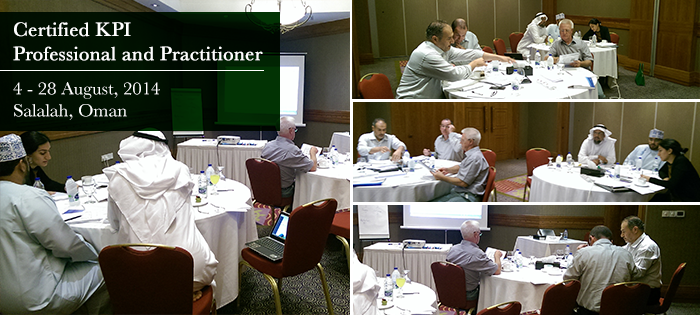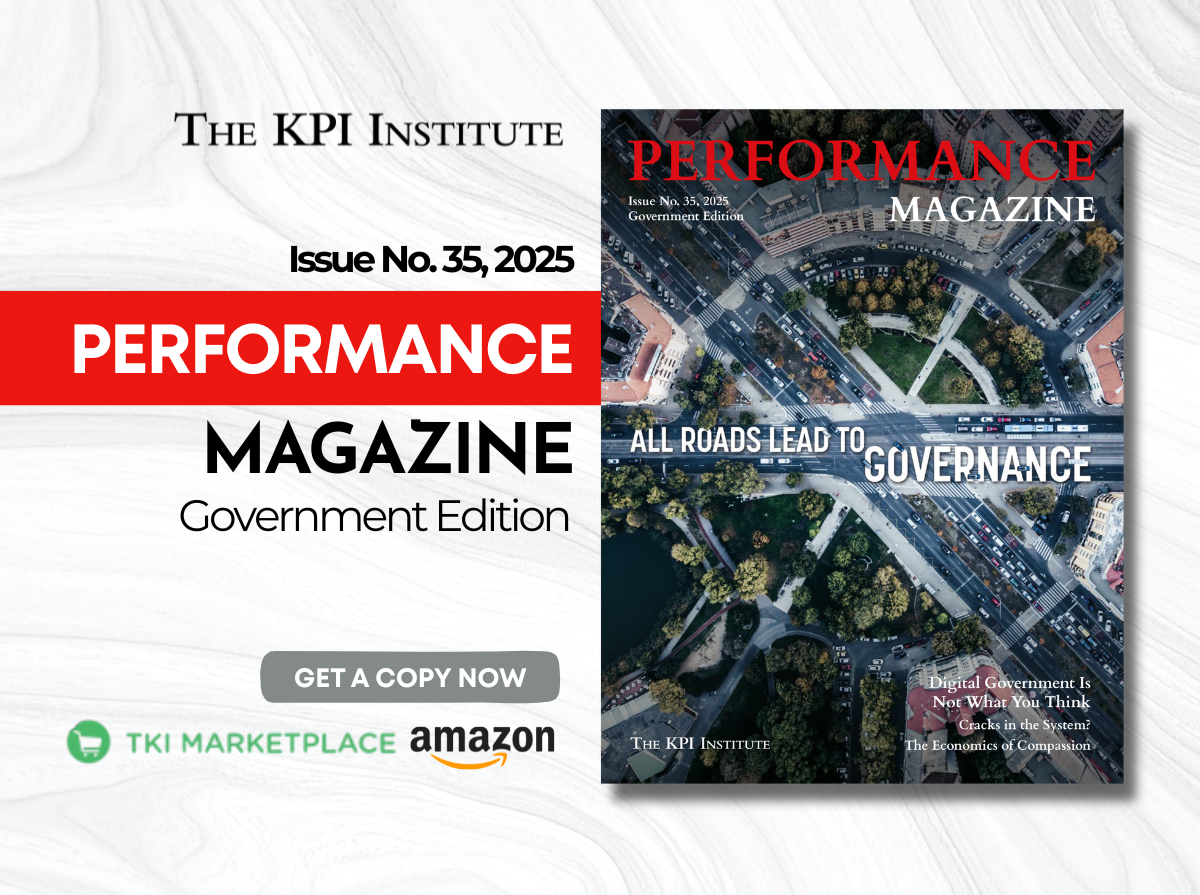Certified KPI Professional & Practitioner Training Courses in Salalah
The Certified KPI Professional & Practitioner Training Courses in Salalah were part of a series of certification courses dedicated to rigorous usage of KPIs in practice. These courses was organized in 2014 at global level in more than 30 cities from 5 continents, by The KPI Institute.
Facilitated by Adrian Brudan, Director of Research of The KPI Institute, these courses were held in Salalah, Oman, between 24th and 28th of August 2014.

The agenda for the Certified KPI Professional course covered in the first day the following subjects:
- Introduction to the world of KPIs;
- The pillars of KPI architecture;
- KPI selection;
The second day sessions covered the following discussion topics:
- KPI documentation;
- Data visualization – Designing KPI Dashboards and Scorecards;
- KPI data gathering and reporting;
In the third day of the course the next themes were approached:
- KPI management enablers: software, hardware, communication and culture;
- Generating value from using KPIs;
- Measuring and learning with KPIs.
In order to enable both the theoretical understanding and practical experience of using a variety of performance management tools and techniques for deploying KPIs correctly across different industries and functional areas, some of the methods used throughout the course were:
- Group discussions, exercises, simulations and case studies;
- Explanation of the theory regarding performance measurement;
- Presentation of the performance management templates as tools to support the integration of performance management practices in organizations;
- Customized feedback regarding the present use and the future plans for implementing performance management systems;
- Active involvement of all the participants in a collaborative learning environment where opinions and experiences are shared.
The course was attended by practitioners from United Arab Emirates, Oman, Bahrain and Saudi Arabia, having different backgrounds and areas of expertise in their working fields, like healthcare, oil and gas, energy, social services, accounting and consultancy.
Before beginning the course, sharing challenges of previous experience in working with KPIs was encouraged and some of them were:
- Assuring commitment and getting the buy in from employees;
- Selecting the relevant KPIs and targets;
- Measuring KPIs;
- Adapting to the business environment and changes;
- How to assure the data gathering system flexibility;
- Accountability and governance in the process of working with KPIs.
Participants were invited to express some learning needs and they communicated the following expectations from the course:
- Understanding the KPI lifecycle and how to design a framework for KPI improvement;
- Discussing about aligning strategy;
- Analyze in depth the topic of KPI selection: what are the best practices and the standards in different industries; selecting the right KPIs;
- Discussing about documenting KPIs;
- Learning about performance management tools for data visualization;
- Approaching the topics of KPI data gathering, analysis and decision making.
The course expectations were met, as the feedback of participants show it:
“The course contents was very useful to my knowledge on how to generate KPIs for my company processes. The course for sure added value for who wants and needs to improve their knowledge with regard to key performance indicators. Also, the instructor was great and his efforts doubtlessly contribute to higher understanding of the subject contents.”
Alaa Abbas, Kuwait National Petroleum Company, Kuwait
“The course content is amazing, it has a powerful information and I really thank you for the professional way of delivering the materials of the course.”
Yahya Al Yafeai, Savannah International Trading Co., Saudi Arabia
In addition to the training sessions, on the last day of the course, participants completed a certification test for obtaining the Certified KPI Professional status. The certification recognizes the professionals’ ability to deploy and use KPIs in accordance with The KPI Institute’s Key Performance Indicators Management Framework, the main body of knowledge on the rigorous use of KPIs in business.
The second course was the Certified KPI Practitioner which focused on practical exercises, accounted for 90 percent of the course’s time, the remaining time being dedicated to review relevant theoretical concepts. Independent from the course, participants can in the future to opt in to obtain their KPI Practitioner Certification by following the steps highlighted on The KPI Institute’s website.
Details about the KPI certification programs can be found on store.kpiinstitute.org.
If the opportunity of customized KPI training courses is of interest to you, email us at office@kpiinstitute.org and you will receive a tailored offer.
For more information contact one of our representatives:
Alexandru Muntean
alexandru.muntean@smartKPIs.com







